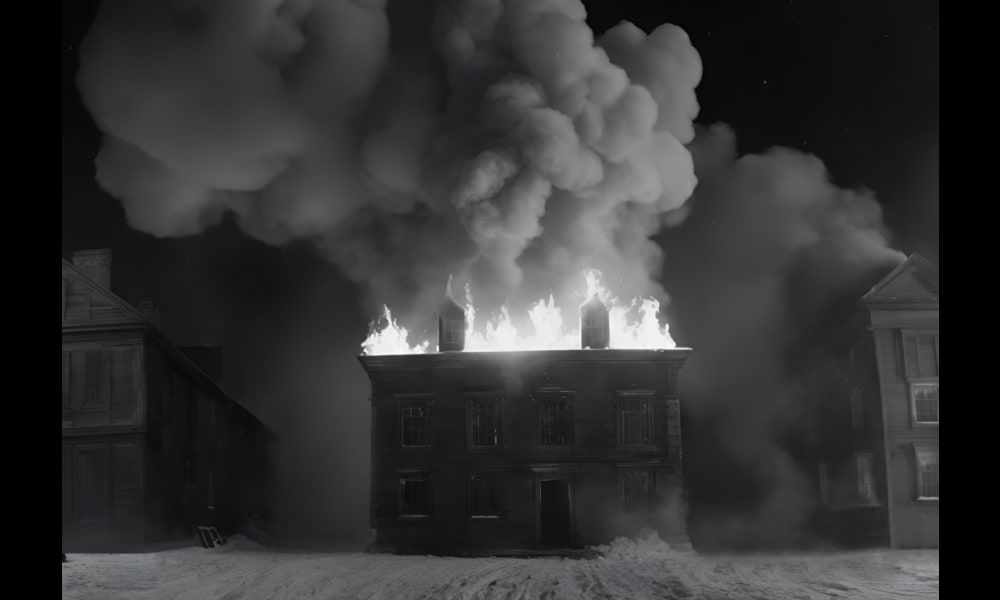Last Friday morning, about two o'clock, a fire was discovered burning from that part of the valuable buildings belonging to Messrs. Cochrans, opposite the Government House, occupied Messrs. Hall, Lewis and Co. — An alarm was instantly given, and the bells ordered to be rung. — A great number of people were soon collected from all parts of the town — the soldiery were [unreadable] ordered to attend — and the boats from the navy filled with seamen, hastened on shore with all possible dispatch; — yet notwithstanding every assistance that could be given, the flames raged with irresistible impetuosity. — The stores of Messrs. Hall, Lewis and Co. together with nearly the whole of their extensive assortment of merchandise were in a few moments reduced to ashes. Messrs. Williams were the next sufferers but, having rather more time, their friends were enabled to preserve a considerable part of their property. The whole range of buildings was finally consumed; and had it not been for the unremitted exertions of all ranks of people, it is impossible to say where this scene of destruction would have ended.
Many of the persons, who occupied houses and shops in the opposite square, were induced to throw their goods, furniture, &c. into the street, or put them into the care of any person with enough room and ready to receive them; by which means much property was destroyed or embezzled. It is impossible at present to determine, with any exactness, the damage sustained on this melancholy occasion; the amount, however, on the whole, must certainly have been very great.
Too much praise cannot be given to the General of the Navy and Army, many of whom attended during the whole time, and not only by their presence contributed to produce order and alacrity among the men, but actually in many instances placed themselves in the ranks who were engaged in handing water to the engines, and such other places where their assistance appeared necessary. The Gentlemen from the Dock Yard, and all other public departments in town, contributed their aid to avert the desolation, which threatened to have been infinitely more extensive.
On account of the late fire, the Halifax Assembly is put off till Thursday the 5th of February (Google Newspaper Archives 1789)


